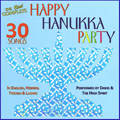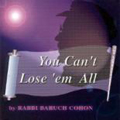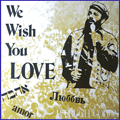|
Announcing an important
new book
available at Amazon.com and Powell Books:
"Faithfully Yours --
Selected Rabbinical Correspondence
of Samuel S. Cohon"
please read reviews:
- by Ephraim Z. Buchwald,
- by Mara Cohen Ioannidesand, and
- in H-Judaic
CDs with music by Baruch Cohon
 |
"The Real Complete Happy Hanukka Party" - 30 songs in English, Hebrew, Yiddish & Ladino - all Hanukka songs and blessings needed for a fun-filled Hanukka! |
| In this CD Rabbi Baruch Cohon teaches us that each of us can be a winner. By focusing on love, gratitude and the ability to laugh we can improve our lives and our destinies! |
 |
 |
"We Wish You Love " - 10 songs by Baruch Cohon with the Israeli Entertainment Ensemble |
Please also browse Rabbi Baruch Cohon's blog >>
|
 |
SAFE HAVEN FOR KILLERS?
From Cain’s murder of Abel, on throughout the Bible, violence and justice recur. Rules like "one who sheds the blood of man, by man shall his blood be shed" establish the ultimate punishment for ultimate crime.
The Torah even recognizes the ancient practice of the avenger, the goel hadam --
literally the "blood redeemer" who took responsibility to kill whoever killed his kinsman. Of course the court required two eye witnesses to confirm guilt. Two or three, never one. And no circumstantial evidence was considered. Even that standard was extended to require that someone warn the killer before he struck. After a court convicted a murderer, the ancient custom still gave this blood redeemer the right to execute him.
But suppose the killing was an accident? Manslaughter, yes, but not willful murder? The Torah cites the classic example of two men who go into the forest to chop down trees. One swings his axe, and the iron head flies off the wooden handle and kills his friend. Shall he be exposed to the vengeance of the victim’s brother? After all, says the Torah, "he did not hate [the victim] yesterday or the day before."
No premeditated crime. No crime at all, really. A tragic accident. And so in two passages -- one in Deuteronomy 19 and one in Numbers 35, we find the commandment to designate Cities of Refuge where the inadvertent killer can go and be safe and the blood redeemer cannot follow him.
Arey miklat they were called. Miklat -- refuge or shelter, the same word used in Israel today for an air-raid shelter. Moses sets up three such refuge cities east of the Jordan, and commands the people to add three more after they enter the Land. There the manslayer can flee and stay until the death of the High Priest, after which the blood redeemer will have no further right to take his life.
These ancient laws give us a handle on some basic concepts of right and wrong, fairness to the suspect, and at the same time a realistic way to deal with primitive human emotions like revenge. Surely that poor fellow with the faulty axe faced an awful change in his life, from independent woodsman to cowering fugitive. But he was alive. And the victim’s brother had to deal with his family’s loss without a violent vengeance that certainly could not bring back the victim of that tragic accident.
Ancient history? Sure. Or is it?
If you go to Hawaii, take a little excursion to some of the state parks and you will probably find one of them in a cave that is accessible only by water. I found that one particularly interesting. Getting out of the boat, we walked through the cave, and saw a diorama that an artist executed on one wall. It showed that cave’s importance to the old Hawaiians. The cave was a special place where a fugitive killer could go and be safe -- until the death of the Big Kahuna. Big Kahuna = Cohen Gadol = High Priest.
Unbelievable, I thought. An exact parallel to the Cities of Refuge in the Torah! So I contacted an old friend of mine, Rabbi Julius Nodel of blessed memory who at that time was the only rabbi in Hawaii, and we talked about it.
"That’s not all," he told me. Not only does "kahuna" sound like "cohen", but a University of Hawaii researcher found some 500 words in the Hawaiian language that have parallel sound and meaning to those words in Hebrew. Like "makana" -- a gift. Hebrew being "matana" -- the Hawaiian language substitutes K for T since it has no T sound. How did all this happen? Are the Hawaiians the mysterious lost tribes of Israel? Not exactly. But some historians deduce that when Polynesians adventured north to explore and later populate the Hawaiian islands, they had to cross many hundreds of miles of open ocean, and they needed some skilled navigators. At that time, the best navigators in the Pacific were Jews. They apparently stayed with their Polynesian employers in their new Hawaiian home, and left their mark.
Including the Refuge Cave -- the miklat -- a safe haven for killers.
back to Publications page >>
|